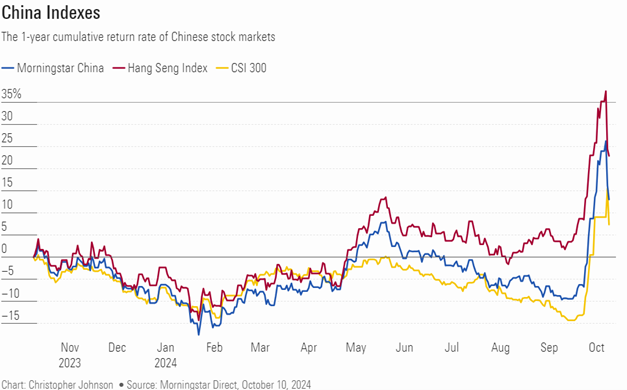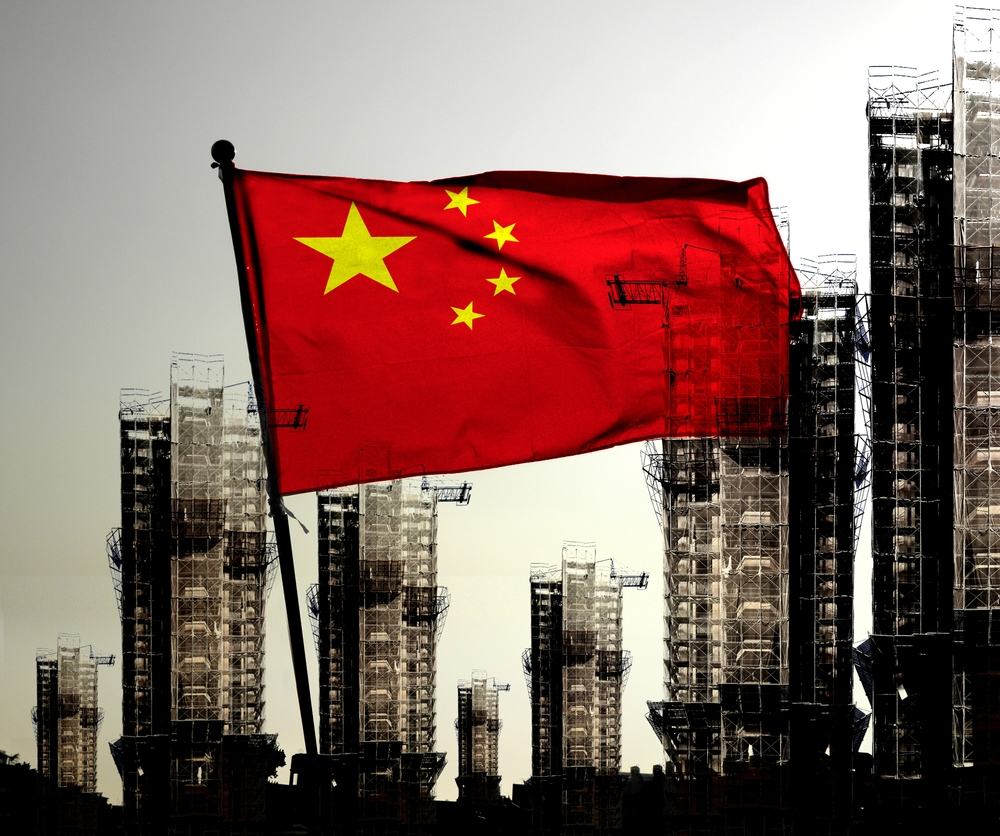
Why Did Stocks Fall?
Two main factors contributed to the sharp decline in the Chinese stock market.
First, while there had been announcements that have uplifted investor sentiment, the challenge now lies in the government's ability to deliver on these promises. Investors are waiting for laws and regulations to be passed and later tangible results in boosting consumer demand, higher corporate profitability, and a recovery in the real estate market.
The second reason was the disappointment among market analysts after Beijing's much-anticipated National Development and Reform Commission press conference. Expectations were high for more details on the massive stimulus measures, but officials fell short, leading to a loss of confidence.
Worst Drop Since COVID-19
On Wednesday, the Shanghai Composite index plummeted by 6.6% to 3,258.86 points, while the blue-chip CSI300 index fell 7.1%, marking their steepest single-day decline since February 2020 and breaking a 10-day winning streak. The smaller Shenzhen index dropped 8.65%, and the ChiNext Composite index, which focuses on start-ups, plunged 10.59%, recording its largest one-day loss in history.*
Turnover in the A-share market, which includes stocks listed in Shanghai, Shenzhen, and Beijing, reached 2.96 trillion yuan ($419.04 billion), down from the record 3.485 trillion yuan set the previous day. In Hong Kong, the Hang Seng index closed 1.4% lower at 20,637.24 points, although it remains one of the strongest performers in the region this year following a historic rally.
and Property stocks suffered some of the biggest losses, with the CSI300 Real Estate index plunging 9.94% and the Hang Seng Mainland Properties Index declined by 3.27%.* This highlights ongoing concerns about the recovery of China's struggling property market, a sector that poses a significant risk to the overall Chinese economy.
Why Is the Real Estate Market So Important in China?
In China’s authoritarian regime, the movement of capital in and out of the country is tightly regulated, making it difficult for ordinary citizens to access international investments. Even the stock market is heavily monitored and largely out of reach for most people. With a minimal social security system in place, the majority of Chinese citizens view real estate as their primary way of saving for retirement.
However, the property market has faced severe challenges in recent years. Developers like Evergrande have been embroiled in financial troubles, and housing prices have plunged by as much as 40% over the past three years. This has led to a vicious cycle, where declining property values suppress consumer spending, further slowing the economy.
To break this cycle, China faces a complex task. Many analysts argue that directly stimulating consumer spending may be ineffective. Instead, they recommend bolstering companies to increase consumer spending indirectly, providing a more sustainable path to recovery.
* Past performance is no guarantee future results.







.jpg)
